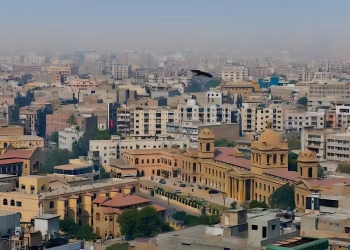The federal government has informed the Supreme Court that military courts have initiated trials for individuals who allegedly attacked military installations on May 9, following the arrest of former Prime Minister and PTI chief Imran Khan.
The issue of trying civilians in military courts has raised grave concerns as well as sparking a heated debate in Pakistan. The government and the army’s decision to try some of the protesters who purportedly attacked sensitive defense installations under the Pakistan Army Act (PAA) and the Official Secrets Act (OSA), which allow for such trials in exceptional circumstances, has many critics who argue that it violates the constitutional and international guarantees of fair trial rights for civilians.
The proponents of military trials assert that the protection of national security, the prevention of future attacks, and the speedy delivery of justice are among the objectives that support the necessity and justification of these proceedings. They also point out that the defendants will have the right to appeal to the civilian high courts and the Supreme Court, which will ensure judicial oversight and accountability.
The detractors of military trials contend that they are arbitrary, unlawful, and unfair, as they deprive civilians of their fundamental rights to due process, presumption of innocence, access to counsel, public hearing, and independent and impartial adjudication. They also question the competence and jurisdiction of military courts to try civilians for offenses that are not directly related to the armed forces or their discipline. They argue that military trials undermine the rule of law, civilian supremacy, and democratic principles in the country.
Nevertheless, there is absolutely no need or excuse to put up great effort to hold military trials, especially in cases where civilian defendants are charged under military statutes. The accused should be entitled to due process, which includes the right of statutory appeal as provided by the Constitution, as well as the right to the counsel of their choosing and to justice.
The controversy over military trials reflects the complex and tense relationship between the civilian and military institutions in the country, which has a history of military coups and interventions. It also highlights the need for reforms in both the civilian and military justice systems, which suffer from various problems such as delays, corruption, inefficiency, politicization, and lack of transparency.
Protection of individual rights and public trust in the legal system are among important factors that cannot be compromised in an independent society. Therefore, the government should respect and uphold the constitutional rights of all citizens, regardless of their political affiliation or alleged crimes.


























